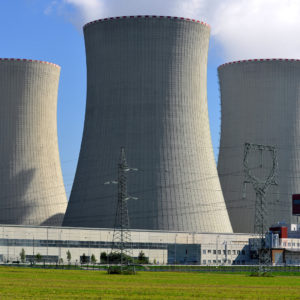At one point, nuclear energy was going to power the future. The atomic age would be cheaper and more efficient than burning coal to produce electricity. Even today, nuclear power is carbon-neutral and arguably more efficient than many alternative energy sources. Despite this, nuclear power has struggled to compete in the present regulatory environment. The latest sign of this comes with the announcement that Westinghouse Electric Company would be exiting the nuclear reactor construction business.
“We are coming back to our previous business model that has been in engineering and procurement. That is where we have the right skills, the right abilities and right capacities,” said CEO Jose Gutierrez at the World Nuclear Association Symposium.
“During this process, we have been delivering on all our commitments,” Gutierrez said. “We have not stopped any of our processes – all our factories and services centers have been working – and in the USA and Europe we have been delivering all our products and services without any kind of interruption.”
The announcement is the latest step in Westinghouse’s emergence from bankruptcy. In late March, the company filed for bankruptcy protections. Westinghouse has been using its Chapter 11 bankruptcy filing to transform itself, shedding unprofitable ventures while retaining its core business of nuclear fuel supply, engineering, component supply, and decontamination & decommissioning.
The company has stated that it hopes to emerge from bankruptcy in the next few months. However, Toshiba, its parent company, is also actively considering a sale of all or part of the business. This could be difficult since any sale to a foreign buyer would require approval from U.S. regulators, since the company is considered to have national security importance. This would reduce an already limited pool of potential buyers by removing any possible Russian or Chinese purchasers.
Westinghouse’s announcement shows the high costs of the current nuclear energy regulatory environment. The company struggled to stay afloat in the wake of massive costs and time overruns on the construction of two nuclear reactors in Georgia. Construction is continuing on the two AP1000 plants near Waynesboro, Georgia, even though completion will cost an additional $9.45 billion on a project that is already well over budget. The plants are expected to open in 2022, six years behind schedule.
Two utilities in South Carolina decided to abandon construction of another AP1000 power plant this summer, a decision that cost around 6,000 workers, including 870 Westinghouse employees, their jobs.
“While we respect Santee Cooper’s decision, we are extremely disappointed,” said Gutierrez in a statement after the announcement. “The South Carolina economy is sure to feel the negative impact of losing over five thousand high-paying, long-term jobs, as well as not having available the reliable, clean, safe and affordable energy these units would provide.”
Westinghouse is only the latest in a string of companies announcing their exits from the nuclear energy industry. Internationally, countries have been turning away from nuclear power since the Fukushima disaster in 2011. Regulators around the world passed strict new safety standards in light of the disaster, even as the cost of other fuels, including both renewables and natural gas, fell. This made it more difficult for nuclear power to remain competitive.
Already, these effects have been seen domestically. In May, Exelon Corporation announced the closure of the Three Mile Island nuclear plant in Pennsylvania. An additional three reactors in New York and one in Illinois are slated to close in 2017, and another five will shut down in 2018 before Three Mile Island’s projected closure in 2019.
These closures reflect shifts in how regulators classify nuclear power as part of the fuel mix. Although carbon neutral, nuclear power is not generally considered to be a renewable energy source. This affects utility companies, which are generally mandated to include a certain percentage of clean energy sources in their fuel mixes. When nuclear energy is not included in the definition of clean energy, it becomes increasingly difficult to justify keeping open aging reactors in an era of cheap natural gas.
Westinghouse hopes that exiting the nuclear reactor construction business will allow it to focus on more profitable ventures, such as supplying nuclear fuel and helping with maintenance. However, its struggles to complete construction projects not only in the U.S., but also in China, show that nuclear energy remains a costly prospect.

